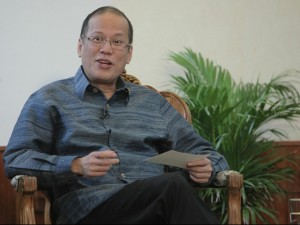Successful Filipino American entrepreneur Diosdado “Dado” Banatao began his career in the United States as a foreign professional worker. With a degree in engineering from the Mapua Institute of Technology, he took on a job offer in the United States as a design engineer for Boeing. A petition for H1B (professional working visa) was filed on his behalf and after completing his contract with his petitioner, Dado pursued his Masters Degree in Electrical Engineering and Computer Science at the Stanford University.
Dado’s story is already well known: He went on to become one of the richest and most successful Filipino techno-entrepreneurs in the United States.
Dado entered the United States in the late ’60s and studied in the early ’70s during the time when visas for students and professionals were widely open to foreign nationals. In the last decade, however, immigration policies have been very restrictive not only to petitioners of family-based petitions but also of employment-based petitions. The H1B visa numbers have been limited to 65,000 each fiscal year and the cap is reached within a few months after it opens.
STEM bill
Realizing how the immigrant professionals and entrepreneurs may spur economic growth, US legislators recently proposed a change in visa policies affecting the foreign student graduates with advance degrees in the field of Science, Technology, Engineering and Math (STEM). On Nov. 30, 2012, the House passed the STEM Bill that will give foreign students with advance degrees in STEM an opportunity to get immigrant visas or green cards.
Unfortunately, the Senate did not pass the bill on Dec. 6, 2012.
Entrepreneur pathway
Another effort to encourage entrepreneurship is the creation of a web portal by the US Citizenship and Immigration Services (USCIS). Director Alejandro Mayorkas of the USCIS announced on Nov. 28, 2012, the launch of its “Entrepreneur Pathways,” a website portal intended to “attract and retain start up enterprises that promote innovation and job creation.”
The new online entrepreneurs resource center may be found at www.uscis.gov. The guide is mainly intended to start up companies or entrepreneurs with potential for growth and innovation.
The USCIS determines the size of the company and the capitalization involved. If the capitalization is minimal the viability of the business is questioned even if the business is genuine and has a potential for growth. To address this concern and to avoid future entrepreneurs from being discouraged in applying for their visas, USCIS Director Mayorkas also provides an opportunity for the USCIS to reach out to existing and potential entrepreneurs through quarterly meetings to work on possible ways to effectively establish their US businesses.
But it important to note that there are no changes in visa policies. Also, the information that is found in this web portal are for nonimmigrant visas that have been in place for many years. Despite having an immigration provision that creates an immigrant visa category for investors under the fifth preference employment based category, no green card or permanent resident visas are currently found in the entrepreneur pathways.
Our very own Dado Banatao is a role model for future immigrant entrepreneurs. It will be more beneficial for the US economy if immigration reform becomes a reality. Hopefully, soon, the current administration will take positive steps towards enacting new rules that adopt a truly entrepreneur friendly culture.
(Tancinco may be reached at law@tancinco.com or at 887 7177 or 721 1963 or visit her website at www.tancinco.com)


